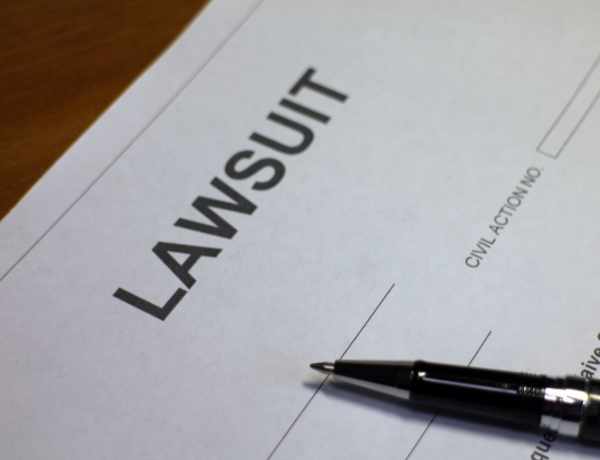
Per- and polyfluoroalkyl substances (PFAS) are a group of man-made chemicals used in a wide range of industrial and consumer products for decades, including non-stick cookware, stain-resistant fabrics, firefighting foam, and food packaging. PFAS have been found to be persistent in the environment, meaning that they do not break down easily and can accumulate in the human body over time. This is why Class Action Lawsuits have been filed against companies using PFAS forever chemicals.

PFAS lawsuits are legal claims brought by individuals who have suffered harm due to exposure to PFAS. These lawsuits seek to hold responsible parties accountable for the harm caused by their actions and may seek compensation for medical expenses, lost wages, and pain and suffering.
Anyone exposed to PFAS and suffered harm, as a result, may be eligible to file a PFAS lawsuit. This includes individuals exposed to PFAS through contaminated water, air, or soil and workers exposed to PFAS in their workplace.
A PFAS lawsuit may be based on various legal theories, including negligence, strict liability, and breach of warranty. Negligence claims may be based on allegations that responsible parties failed to take adequate measures to prevent or mitigate PFAS contamination. In contrast, strict liability claims may be based on allegations that responsible parties are strictly liable for harm caused by their actions. Breach of warranty claims may be based on allegations that responsible parties breached warranties or guarantees regarding the safety of their products.
The damages that can be recovered in a PFAS lawsuit will depend on the case's specific facts. Generally, plaintiffs may seek compensation for medical expenses, lost wages, and pain and suffering. In some cases, punitive damages may also be available to punish responsible parties for their actions.
If you believe you have a valid PFAS claim, consult an experienced class PFAS lawyer from Class Action 101, who can evaluate your case and advise you on your legal options. Your attorney can help you gather evidence, file a complaint, and pursue your claim in court.
PFAS exposure can have serious health consequences, and those responsible for causing the harm should be held accountable. If you have suffered harm due to PFAS exposure, you may be eligible to file a PFAS lawsuit. Contact an experienced lawyer to learn more about your legal options.
Per- and polyfluoroalkyl substances (PFAS) are a group of man-made chemicals that have been used in a variety of consumer products since the 1940s. They have been found to be dangerous and harmful to human health and the environment. Here's a closer look at why PFAS is dangerous:
PFAS is known as "forever chemicals" because they do not break down naturally in the environment. They can persist for decades, even centuries, and accumulate in soil, water, and air. This persistence means that once PFAS is introduced into the environment, it can remain there for a long time, posing a risk to human health and the ecosystem.
Exposure to PFAS has been linked to a variety of health problems, including cancer, thyroid disease, immune system dysfunction, and developmental issues in children. PFAS can enter the body through contaminated drinking water, food, and air. Once inside the body, they can accumulate in organs and tissues, increasing the risk of health problems.
PFAS can accumulate in the food chain, meaning that animals and humans who consume contaminated food or water can accumulate higher levels of PFAS in their bodies over time. This bioaccumulation can lead to higher levels of exposure and increased health risks.
Despite the known risks associated with PFAS, there is currently no federal regulation in the United States. The Environmental Protection Agency (EPA) has set a non-enforceable health advisory level for PFAS in drinking water. Still, there are no federal limits on PFAS in food, air, or consumer products. Some states have taken action to regulate PFAS, but there is still a lack of comprehensive federal regulation.
In summary, PFAS is dangerous due to its environmental persistence, health risks associated with exposure, bioaccumulation in the food chain, and lack of federal regulation. Reducing exposure to PFAS and advocating for stronger regulation to protect human health and the environment is essential.
Recent studies have linked exposure to PFAS with several health problems, including:
As a result, many class action lawsuits have been filed against companies that produce or use PFAS.
In these class action lawsuits, groups of people affected by PFAS exposure come together to seek compensation for their injuries or damages. The lawsuits typically allege that the companies knew or should have known about the dangers of PFAS but failed to adequately warn consumers or take steps to protect them from harm.
One of the largest and most well-known PFAS class action lawsuits was filed against DuPont and Chemours in 2018. The lawsuit alleged that the companies had knowingly contaminated drinking water in several states with PFAS from their manufacturing plants, causing widespread harm to the environment and human health. In 2021, the companies agreed to pay $4 billion to settle the lawsuit, which is one of the largest environmental settlements in U.S. history.
Other companies that have faced PFAS class action lawsuits include:
3M was one of the first companies to produce PFAS chemicals used in the company's Scotchgard product line. The company has faced criticism for handling these chemicals and for not disclosing the potential risks associated with their use. In 2000, 3M stopped manufacturing PFAS chemicals, but the damage had already been done.
3M has faced legal action for its involvement in PFAS chemicals. In 2018, the company settled a lawsuit with the state of Minnesota for $850 million over allegations that it contaminated drinking water with PFAS chemicals. The company has also faced lawsuits from individuals claiming that they were exposed to PFAS chemicals and suffered health problems.
Tyco Fire Products has been accused of contaminating groundwater and drinking water sources with PFAS from its firefighting foam products. The company has been named in several lawsuits filed by individuals and communities affected by PFAS contamination. In 2018, the Michigan Department of Environmental Quality ordered Tyco to investigate PFAS contamination at its manufacturing facility in Marinette, Wisconsin.
Tyco Fire Products has acknowledged the presence of PFAS in its firefighting foam products and has taken steps to address the issue. In 2018, the company announced that it would stop using PFAS in its foam products by 2020. Tyco has also committed to funding PFAS contamination remediation efforts in affected communities.
The use of PFAS in firefighting foam has been a topic of concern for regulators in recent years. In 2019, the U.S. Environmental Protection Agency (EPA) issued a drinking water health advisory for two types of PFAS, recommending a maximum contaminant level of 70 parts per trillion. In January 2020, the EPA proposed a regulatory determination for PFAS under the Safe Drinking Water Act, which could lead to enforceable drinking water standards for PFAS.
Wolverine World Wide has been linked to PFAS contamination in Michigan due to its history of using chemicals to produce its shoes. In 2017, it was discovered that PFAS had leached into the groundwater near one of the company's former tannery sites. The contamination affected nearby residents' drinking water and forced several wells to be closed.
Wolverine World Wide has taken steps to address the PFAS contamination, including providing bottled water to affected residents and installing a filtration system to remove the chemicals from the groundwater. The company has also pledged to test and clean up other sites where PFAS may have been used in its operations.
Wolverine World Wide has faced legal action from residents and the state of Michigan over the PFAS contamination. In 2018, the company agreed to pay $69.5 million to settle a class-action lawsuit filed by residents affected by the contamination. The settlement included compensation for damages, medical monitoring, and installing a new water system for affected residents.
In some cases, the lawsuits have resulted in large settlements or verdicts for the plaintiffs, while in others, the cases are still ongoing.
Overall, the rise in PFAS class action lawsuits highlights the growing awareness of the dangers of these chemicals and the need for companies to take responsibility for their use and disposal. If you or a loved one has experienced exposure to PFAS chemicals and been diagnosed with a cancer or disease, you may have a case. Contact our lawyers today for a FREE consultation.